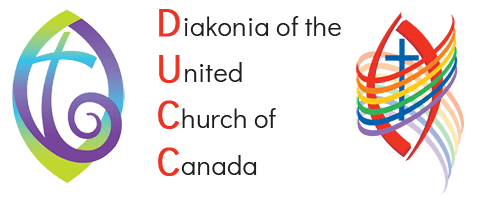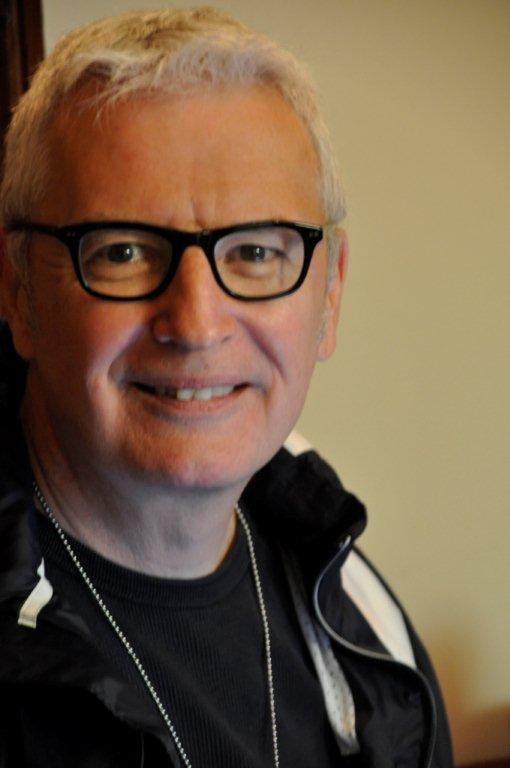Profiles
Ted Dodd is an educator, engaging his playfulness and depth to nurture and challenge people to learn and grow. After 23 years as an Ordained Minister he switched his ministry designation and in 2003 he became a Diaconal Minister. A special program through the Centre for Christian Studies, Winnipeg, where Ted is a member of the Program Staff, was one part of his preparation for the switch. A rich breadth of experience was the other source. His experiences include: youth ministry, social justice animation, drama, curriculum development, ministry formation teaching, scholarship and writing, and liturgical leadership.
Year Commissioned, location
2003, Conference of Manitoba and Northwestern Ontario, Thunder Bay
Program of Formation
CCS Special Certificate in Diaconal Studies
What called you to diaconal ministry?
In 1980 I was ordained to a ministry of word, sacrament and pastoral care. Through ministry in many different ministry settings over more than twenty years, I was blessed, and blessed again. The church has at times exasperated me – but it has accepted me, developed my gifts and affirmed me as a valued and worthwhile human being, and given me opportunity and space to share my gifts. I have not regretted my life in ordained ministry. But as the old century came to a close, I began the process to have my order of ministry designation switched from ordained to diaconal.
I, partially, understand diaconal ministry in terms of function. With two years as a congregational staff associate responsible for outreach and education, eleven years as a Conference staff person in the areas of education and justice, and now fourteen years as a theological educator; my ministry has focused on diaconal functions. I endeavor to integrate pastoral care, education and social justice throughout ministry. In my conversations about my desire to switch my ministry designation from ordained to diaconal, I have often begun my explanation with reference to function. This has been a helpful place to start in the attempt to explain this unprecedented move. In many ways I see the value in this functional approach. But I would not want to reduce diaconal ministry to a job description. I do not want to unduly place value on performance and productivity in ministry over presence and reflection. A breadth of relationships, theology, spirituality, history and commitments make up the vocation of diaconal ministry.
I, partially, understand diaconal ministry in terms of style. Enabling and empowering nurture, growth-oriented and prophetic questioning, non-hierarchical inclusivity, consultative collegiality, mutuality in accompaniment are articulated faith values of the diaconal community. These attributes are not, of course, unique to the diaconal community. But the diaconal community offers accountability to these values and I continue to long to be officially a part of this kind of ongoing, intentional feedback and responsible discerning.
I, partially, understand diaconal ministry in terms of perspective. Diaconal identity is shaped by a long and rich history. The diaconal community tends to operate from a strong calling to what has traditionally been understood as servanthood and has been prophetically understood as justice orientation. In many ways it is a marginalized, non-normative ministry. This experience affects the diaconal viewpoint and understanding. I ache at the injustice and unfairness of the way those in the diaconate are discounted and discredited. But I delight in the stories of courage and defiance and the dedication to integration. I am moved by the stories shared about faithful mentors and outrageous characters. I feel a sense of belonging to the diaconal community and lives of faithful commitment, responsibility and hope.
Describe some of your experiences of ministry
I joined the Centre for Christian Studies program staff in July of 1998. In 2012, I was named co-recipient of the Davidson Trust Award for excellence in theological education. Prior to joining the staff of CCS, I served a new church development congregation in Winnipeg. For eleven years, I was Worship, Education and Justice staff for the Conference of Manitoba and Northwestern Ontario of the United Church of Canada. I have also worked in interim ministry with an amalgamating congregation, in a rural four‑point charge, and in urban Toronto as a staff associate. I co‑edited Roll Away the Stone: Lenten Reflections at the Close of the Ecumenical Decade in Solidarity with Women, contributed to Spiritual Guides, and chaired the national task group preparing the service book, Celebrate God’s Presence. My thesis for my Master of Sacred Theology degree is entitled Diaconal Ministry in the United Church of Canada: Function, Style and Perspective. I have completed a certificate in Conflict Mediation. My Doctor of Ministry program at the Vancouver School of Theology focused on a thesis entitled Sacred Circle of Learning: A Model of Transformational Theological Education. In preparation for the 2009 DUCC meeting I wrote an article “The Issue of One Rite”
Updated October 2, 2012.
Make a profile!
We welcome profiles of anyone engaged in diaconal ministry. It is not limited to members of DUCC (although you are encouraged to considering joining!)
Profiles will be edited for clarity. By submitting a profile and picture you are giving permission for posting to this website.


